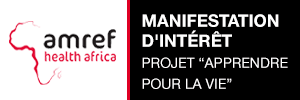.
Objectives of the programme
The mission of WHO’s Emergency Preparedness & Response (EPR) Cluster is to build the capacity of Member States to manage health emergency risks and, when national capacities are overwhelmed, to lead and coordinate the international health response to contain outbreaks and to provide effective relief and recovery to affected populations. Within EPR, the Strategic Support Unit coordinates EPR-related strategic activities at the regional level, including strategy planning, innovation, external relations, external communications, grant management as well as coordinates monitoring, evaluation, accountability and learning activities across the EPR programme areas and countries. The STS team works together and collaborates with colleagues across the EPR Cluster and beyond to contribute to the delivery of the vision/goals of the EPR Cluster.
Purpose of the position
In early 2022, WHO AFRO, in collaboration with partners, launched three flagship programs to strengthen health Emergency Preparedness and Response (EPR) in Africa: Promoting Resilience of Systems for Emergencies (PROSE), Transforming African Surveillance Systems (TASS), and SURGE (Strengthening and Utilizing Response Groups for Emergencies). These programs aim to enhance country capacities in preparedness, detection, and response to health emergencies.
To further integrate emergency preparedness and response across the continent, African health ministers endorsed the Regional Strategy for Health Security and Emergencies 2022–2030 at the 72nd WHO Regional Committee Meeting for Africa. This strategy commits African Member States to achieving 12 targets by 2030, aligning with the Global Architecture for Health Emergency Preparedness, Response, and Resilience. WHO AFRO is implementing these flagship initiatives to support Member States in building resilient health systems.
A key initiative under this strategy is establishing Regional Emergency Hubs in Kenya, Senegal, and South Africa, with supply warehouses in Nairobi and Dakar. These Hubs will focus on emergency workforce development, data, innovation, intelligence, genomic surveillance, and R&D. Since the Nairobi Hub’s temporary warehouse became operational, the average time to deliver emergency supplies across Africa has decreased from three weeks to three days.
Recognizing the importance of partnerships, WHO and Africa CDC have formed a new collaboration to strengthen health emergency preparedness, response, and resilience (HEPR) across Africa. They have developed a five-year Joint Emergency Preparedness and Response Action Plan (JEAP) to enhance emergency capacity, coordination, and collaboration across the continent.
The success of these initiatives relies on effective program management and strategic partnerships. The Strategy and Partnerships Officer will coordinate these efforts, working closely with EPR leadership, technical staff, and external partners to ensure seamless execution and alignment with strategic objectives. Over the next five years (2023-2027), WHO and Africa CDC will implement activities across eight collaboration areas: workforce development; surveillance (including diagnostics and genome sequencing); response readiness and coordination; country preparedness assessments; logistics, supply chain, and stockpiling; risk communication and community engagement; digitalization; and climate change.
The Strategy and Partnership Officer’s role will be crucial in implementing JEAP’s action plan and coordinating between WHO and its strategic partners. The officer will also support resource mobilization for JEAP, the WHO EPR Cluster, the WHO Hubs.
Description of duties
Program Management Office (PMO) Functions for the JEAP Secretariat
• Facilitate Governance and Management: Oversee the implementation of the JEAP Secretariat’s governance and management structures.
• Coordinate Meetings: Prepare and facilitate weekly focal point meetings involving WHO AFRO, WHO EMRO, and Africa CDC, as well as quarterly Steering Committee meetings with senior leadership from these organizations.
• Manage Technical Working Groups (TWGs): Facilitate bi-weekly meetings across eight TWGs, ensuring follow-up on workplans to keep them on track. Support the onboarding and institutionalization of three new TWGs.
• Ensure Coordination: Coordinate between TWGs, focal points, and other stakeholders to ensure timely progress on workplan activities.
• Monitor Progress and Reporting: Track JEAP progress, budgets, and workplans, providing regular reports and updates to maintain transparency and accountability.
• Risk Management: Identify potential risks to the partnership and assist in developing mitigation strategies.
• Partner Engagement: Support partner engagement by preparing tailored materials, such as decks and talking points, and assisting focal points with strategic planning and decision-making.
• Strategic Partnerships and Resource Mobilization Support
• Proposal Development: Assist in developing critical proposals to secure resources.
• Partner Relations: Build and maintain relationships with key partners.
• Reporting and Event Organization: Support reporting activities for the EPR Cluster and assist in organizing key events.
• Technical Liaison: Act as the technical focal point for service providers and consulting firms engaged with the EPR Cluster.
• Support to the Dakar Hub Coordination Office
• Strategic Support: Assist the Hub Coordinator in developing strategic initiatives, resource mobilization efforts, and strategic partnerships.
• Liaison Role: Serve as a liaison between the Dakar Hub teams and the STS unit, ensuring alignment with EPR unit competencies.
Required qualifications
Educational Qualifications
Essential
First University degree in business administration, information management, public health, epidemiology, economics, international development or life sciences from a recognized university.
Desirable
• Certified training in project or programme management or at least 3 years of strategy and management consulting experience.
• Prevention of sexual exploitation and abuse training.
• Specialized training in emergency/humanitarian fields.
Experience
Essential
• At least five (5) years of proven experience in program or project management role at the international level, including experience in public health development and/or emergency management.
Desirable
• Prior work experience within the United Nations System, private sector enterprise, recognized humanitarian organizations, or with an international non-governmental organization.
• Proven experience in program strategy development, including writing and editing a wide range of compelling strategy materials targeting a variety of audiences.
• Proven experience with change management.
• Experience working in Africa.
Skills
• Background and objectives of emergency management programmes, practices, and procedures.
• Exceptional project management skills, including the ability to achieve consensus and chart clear paths forward from ambiguity.
• Exceptional problem-solving skills and with a thorough understanding of problem-solving approaches.
• Good research and documentation skills especially for best practices in organizational change.
• Proven ability to make recommendations related to work-processing approaches and procedures which would lead to more efficient systems design.
• Exceptional writing skills with the ability to simplify complex ideas without losing critical nuance.
• Strong facilitation skills (i.e., ability to plan and lead brainstorming sessions, workshops, etc.) with senior leaders.
• Skilled communicator comfortable engaging with a variety of stakeholders, from funders to staff members across the organization.
• Strong interpersonal and organizational skills.
• Track-record of producing results under pressure.
• Sound understanding of the impact of emergencies and crises on social and economic development, and its burden on populations.
• Good knowledge of WHO mandate and goals in the emergency incident management context.
• Strong people management skills especially in a multi-cultural context
WHO Competencies
• Teamwork
• Moving forward in a changing environment
• Respecting and promoting individual and cultural differences
• Communication
• Technical Expertise
Use of Language Skills
• Excellent knowledge of English is required.
Other Skills (e.g., IT)
Excellent knowledge of Microsoft Office applications
Remuneration
WHO offers staff in the Professional Category an attractive remuneration package, which for the above position includes an annual net base salary starting at 64,121 US Dollars (subject to mandatory deductions for pension contributions and health insurance, as applicable).
Other benefits include 30 days of annual leave, allowances for dependent family members, home leave, and an education grant for dependent children.




